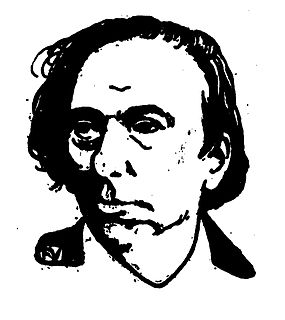A Quote by Mahatma Gandhi
Related Quotes
There are three kinds of nature in man, as Nicetas Stethatos further explains: the carnal man, who wants to live for his own pleasure, even if it harms others; the natural man, who wants to please both himself and others; and the spiritual man, who wants to please only God, even if it harms himself. The first is lower than human nature, the second is normal, the third is above nature; it is life in Christ.
Anyone who is not totally dead to himself will soon find that he is tempted and overcome by piddling and frivolous things. Whoever is weak in spirit, given to the flesh and inclined to sensual things can, but only with great difficulty, drag himself away from his earthly desires. Therefore he is often gloomy and sad when he is trying to pull himself away from them, and easily gives way to anger should someone attempt to oppose him.
Wine makes a man better pleased with himself. I do not say that it makes him more pleasing to others. Sometimes it does. But the danger is, that while a man grows better pleased with himself, he may be growing less pleasing to others. Wine gives a man nothing. It neither gives him knowledge nor wit; it only animates a man, and enables him to bring out what a dread of the company has presented.
Anger is one of the most common and destructive delusions, and it afflicts our mind almost every day. To solve the problem of anger, we first need to recognize the anger within our mind, acknowledge how it harms both ourself and others, and appreciate the benefits of being patient in the face of difficulties.
For the essence of sin is man substituting himself for God [Gen. 3:1-7], while the essence of salvation is God substituting himself for man [2 Cor. 5:21]. Man asserts himself against God and puts himself where only God deserves to be; God sacrifices himself for man and puts himself where only man deserves to be.
For any true stickler, you see, the sight of the plural word “Book’s” with an apostrophe in it will trigger a ghastly private emotional process similar to the stages of bereavement, though greatly accelerated. First there is shock. Within seconds, shock gives way to disbelief, disbelief to pain, and pain to anger. Finally (and this is where the analogy breaks down), anger gives way to a righteous urge to perpetrate an act of criminal damage with the aid of a permanent marker.
When a man really gives up trying to make something out of himself - a saint, or a converted sinner, or a churchman (a so-called clerical somebody), a righteous or unrighteous man,...and throws himself into the arms of God...then he wakes with Christ in Gethsemane. That is faith, that is metanoia and it is thus that he becomes a man and Christian.










































